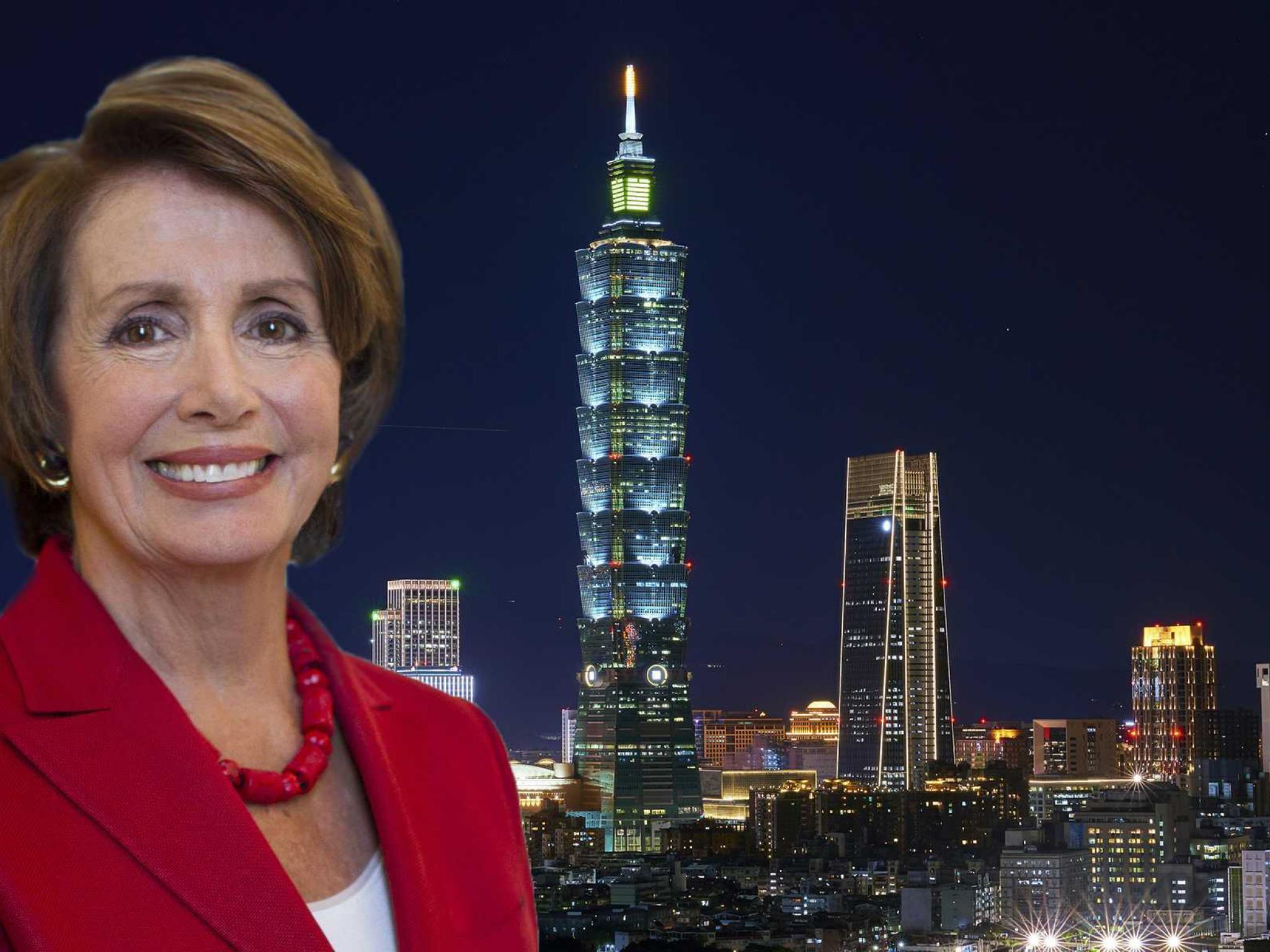
House Speaker Nancy Pelosi, a California Democrat whose visit to Taiwan on Tuesday is heating up Sino-American relations, is a longtime critic of China and has been a forthright human rights advocate throughout her career.
Recall in 1991, when — as a representative of California's fifth district — Pelosi joined other U.S. representatives in Tiananmen Square and held up a banner that read: "To those who died for democracy in China" (see video).
This was just a couple of years after student-led demonstrators were killed by armed troops in what is known as the Tiananmen Square Massacre. The death toll is believed to have been around 10,000.
The Context For Pelosi's Visit: Fast forward to today: Pelosi and a congressional delegation are on an Asia tour. Today's stop is Taiwan, which has so far caused a geopolitical stir. Here's why:
- Taiwan is a democracy and governs itself.
- China sees it as a breakaway province.
- The U.S. diplomatically recognizes Beijing and the "One China" policy, which says Taiwan is a part of China under President Xi Jinping.
- At the same time, the U.S. Department of State touts "a robust unofficial relationship" with Taiwan due to "similar values, deep commercial and economic links, and strong people-to-people ties," according to its website.
- U.S. also sells Taiwan arms — another contentious issue between U.S. and China.
- Pelosi is the first and highest-level U.S. official to visit Taiwan in 25 years.
Pelosi's Position On Taiwan: Pelosi, who landed in Taiwan on Tuesday, is reportedly expected to meet Taiwan President Tsai Ing-wen and members of Taiwan's legislature on Wednesday, Aug. 3. Her trip also includes stops in Singapore, Malaysia, Japan and South Korea (h/t NPR).
In a recent Washington Post editorial published prior to the trip, Pelosi reiterated her support for Taiwan's democracy.
"We must stand by Taiwan, which is an island of resilience," she wrote. "In the face of the Chinese Communist Party's (CCP) accelerating aggression, our congressional delegation's visit should be seen as an unequivocal statement that America stands with Taiwan, our democratic partner, as it defends itself and its freedom."
How China Responded: According to the New York Times, Pelosi's trip is stressing the Biden White House over fears that it could spark a conflict in the Taiwan Strait.
Chinese state media outlets, including state broadcaster CCTV, have reported that Chinese Su-35 fighter jets were crossing the strait just as the plane believed to be carrying Pelosi was approaching.
China's foreign ministry said on Twitter, "The US & Taiwan have made provocations together first, whereas China has been compelled to act in self-defense. Any countermeasure to be taken by China would be a justified & necessary response to the US oblivion to China's repeated démarches and the US’s unscrupulous behavior."
The Chinese Foreign Ministry released a full statement, calling Pelosi's visit a "serious violation of the one-China principle."
"It gravely undermines peace and stability across the Taiwan Strait, and sends a seriously wrong signal to the separatist forces for 'Taiwan independence,'" the ministry added.
China state media publication Global Times, on Twitter, cited deputy officer Gu Zhong of the PLA Eastern Theater Command, to confirm "joint military ops around Taiwan," with joint maritime and air drills in the North, Southwest, and Southeast of the island.
The live fire activity includes long-range artillery shooting in Taiwan Straits, and conventional missile test firing in sea regions east of the island starting Tuesday night local time.
SOXX Price Action: The iShares Semiconductor ETF was trading 0.91% higher at $412.63 Tuesday afternoon. Taiwan is central to the semiconductor foundry market.
Illustration with images by Timo Volz by Pexels and Wikimedia Commons.







